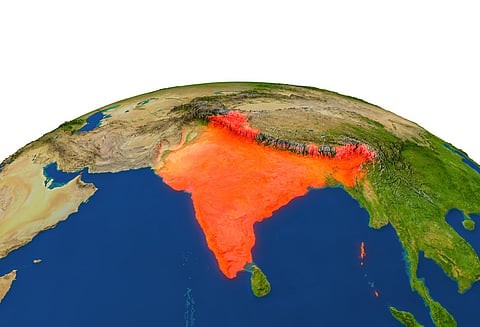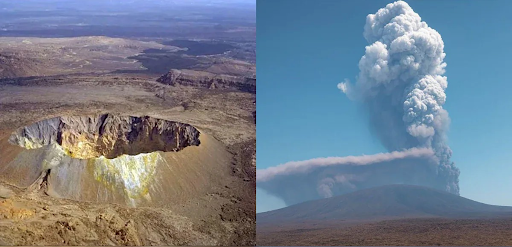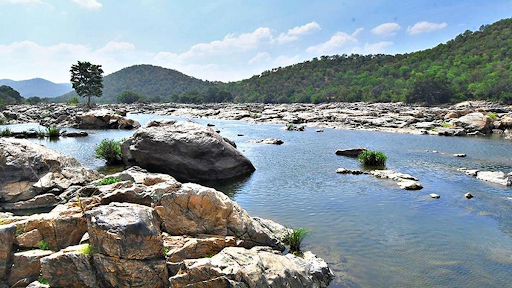Description
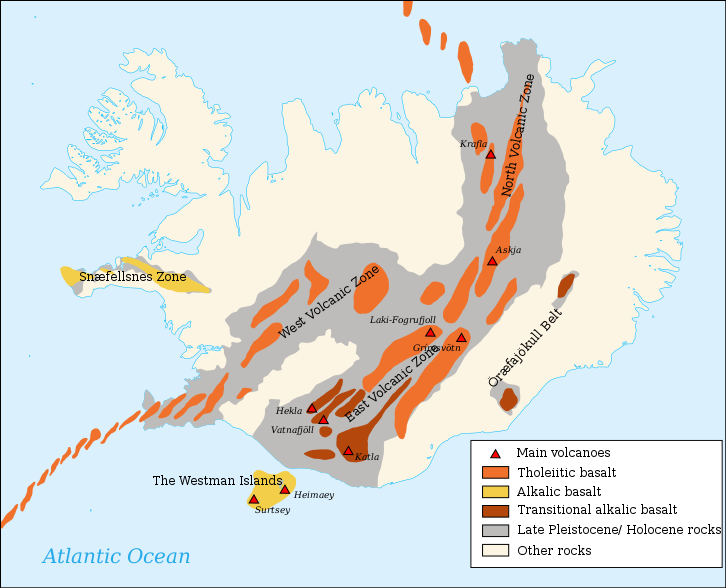
Disclaimer: Copyright infringement not intended.
Context
- The Iceland Met Office has said that there is a “considerable” likelihood of a volcanic eruption occurring over the next few days.
- A state of emergency has been declared in Iceland, after a swarm of 800 earthquakes rocked the island country’s southwestern Reykjanes peninsula in under 14 hours on Friday (November 10).
- Around 1,400 earthquakes were measured in the previous 24 hours, and over 24,000 have been recorded in the peninsula since late October. The most powerful of these quakes had a magnitude of 5.2, and hit about 40 km from Reykjavík, Iceland’s capital, on Friday.

Details
- The most violent of these quakes had a magnitude of 5.2 and struck around 40 kilometers from Iceland's capital,
- Perlan is a natural history museum in Reykjavik.
What is going on in Iceland?
- Iceland is positioned on the Mid-Atlantic Ridge, the world's longest mountain range, but on the ocean floor.
- The ridge is a hotspot of seismic activity because it separates the Eurasian and North American tectonic plates.
- Iceland suffers approximately 26000 earthquakes each year on average.
- A swarm of earthquakes,a series of primarily minor earthquakes with no discernible mainshock can be a concerning precursor to a volcanic eruption.
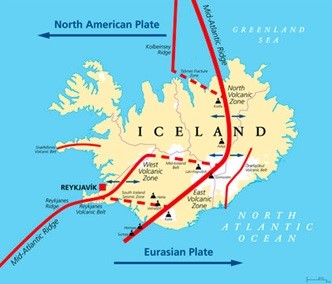
How might earthquake swarms indicate volcanic activity?
- Intense heat deep beneath the Earth's surface melts rocks to generate lava, a viscous flowing fluid lighter than solid rock.
- This causes it to rise, and the majority of it becomes trapped in magma chambers deep down.
- This thick liquid cool and solidifies again over time. However, a small portion explodes through surface vents and fissures, resulting in volcanic eruptions.
- The flow of magma near the Earth's surface exerts stress on the surrounding rock, causing earthquake swarms.
- Magma flow underground may not always result in an explosion. However, the closer it gets to the surface, the more likely an eruption and symptomatic seismic swarms become.
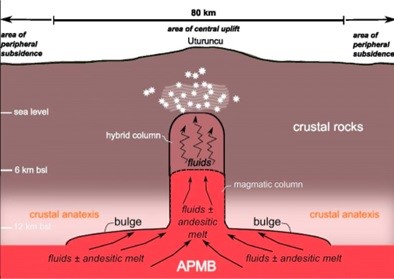
Fagradalsfjall volcanic system:
- Fagradalsfjall lies about 40 km to the southwest of Reykjavík and is the “world’s newest baby volcano.”
- It had been dormant for eight centuries before erupting in 2021, 2022 and 2023.
How many active volcanos does Iceland currently have?
- Iceland has 33 active volcanoes, with over 180 eruptions in the last 1,000 years.
- Active volcanoes are those that have erupted or have the capacity to erupt during the Holocene (the current geologic epoch, which began at the end of the most recent ice age around 11,650 years ago).
- Eyjafjallajökull is a well-known volcano in Iceland. Hekla, Grmsvötn, Hóluhraun, and Litli-Hrtur (part of the Fagradalsfjall system) are also well-known volcanoes.
|
PRACTICE QUESTION
Iceland experiences frequent seismic activity, marked by numerous earthquakes. Discuss the geological factors contributing to the high frequency of earthquakes in Iceland.
|









